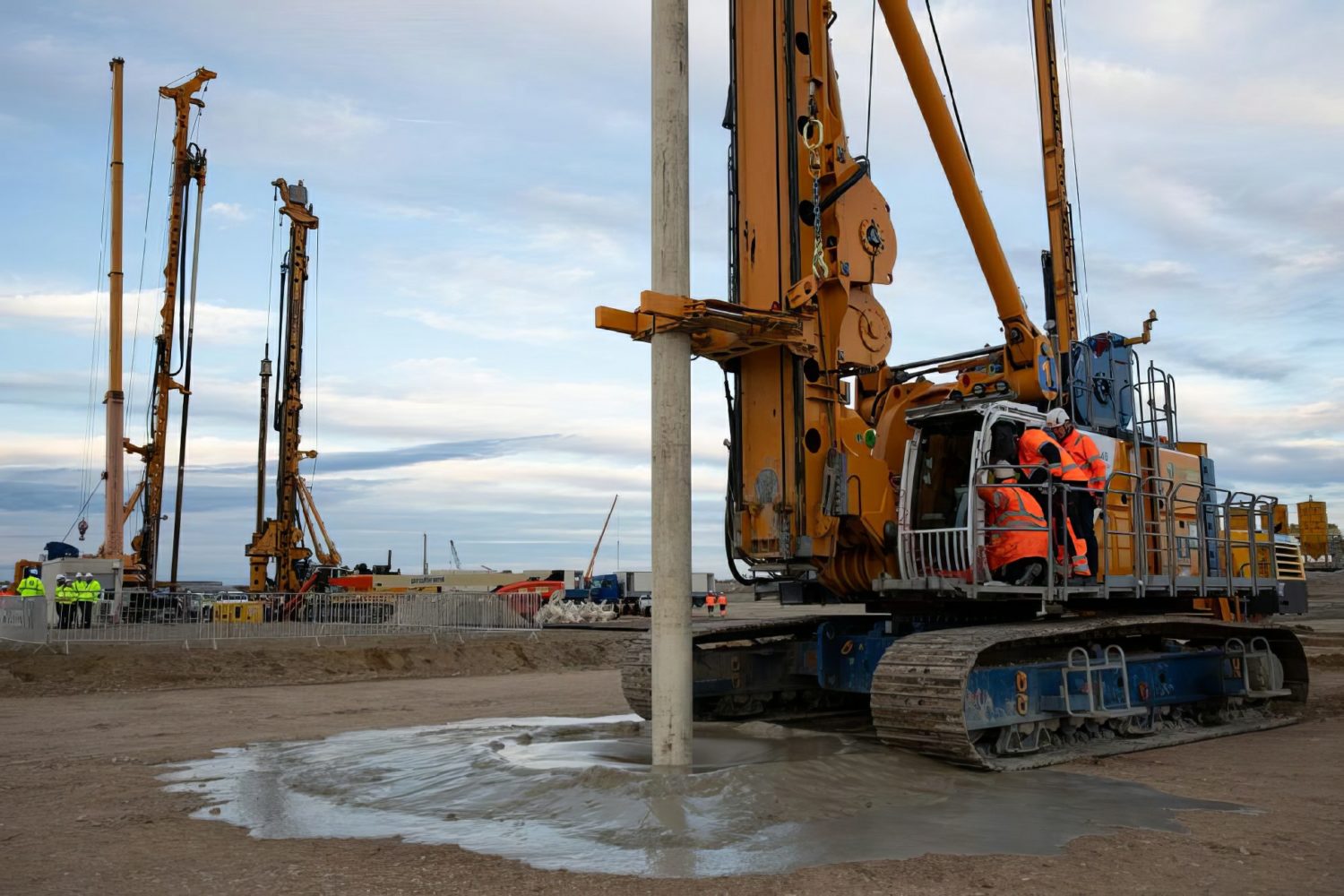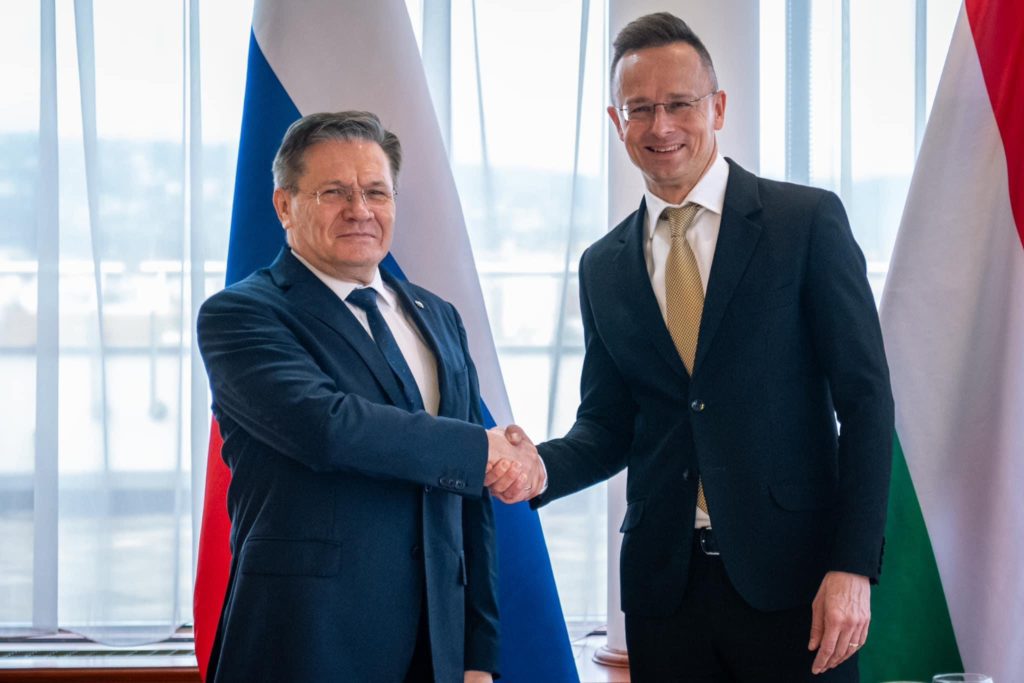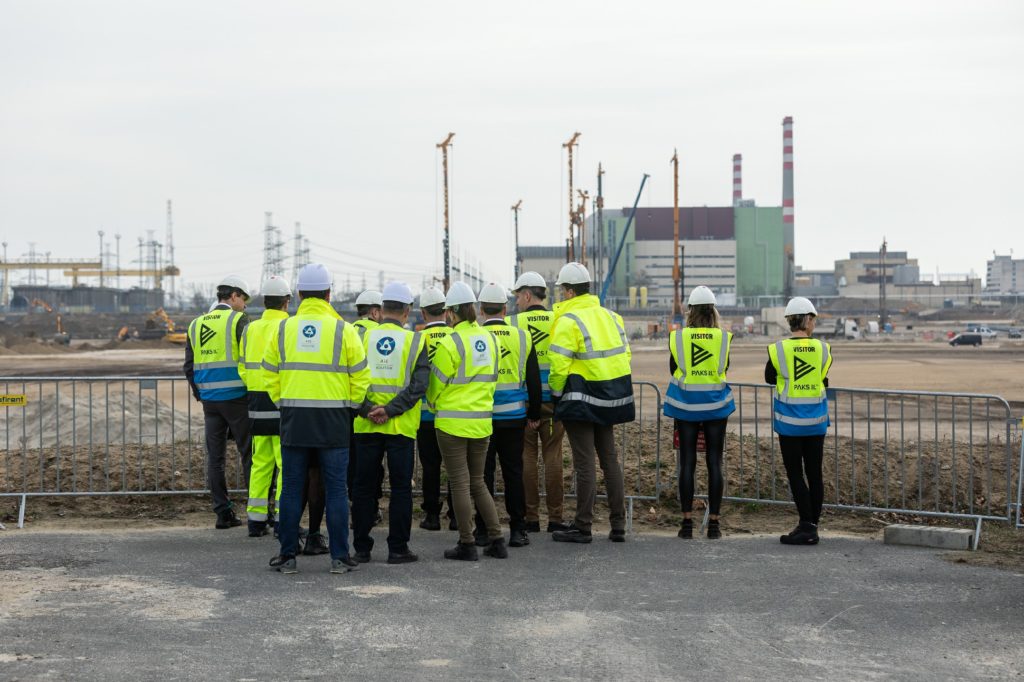
New Reactors for Hungary’s Future
back to contentsPouring first concrete for Paks II might take place later this year. Hungary’s top officials are convinced that the country is in vital need of new nuclear capacity. As the on-site construction works are gaining momentum, the number of local contractors involved in the project will grow.
Progress on the construction of the new Paks units is advancing rapidly. This statement was made by Alexey Likhachev, the head of Rosatom, and Peter Szijjártó, the Minister of Foreign Economic Relations and Foreign Affairs of Hungary, following discussions in Budapest in early March. Last year, excavation work surpassed expectations, reaching a depth of 5 meters below the groundwater level ahead of schedule. The construction of impermeable protection, consisting of a special underground concrete wall spanning 2700 meters around the excavation, has been completed. This protective measure will safeguard the ongoing excavation from groundwater infiltration and ensure the safe operation of the existing power units during the construction of the new ones. Currently, there is active reinforcement of the ground, with plans to commence excavation to the designed depth of 30 meters in the summer of 2024. Subsequently, preparations for concrete work, including reinforcement for the future foundation slab, will commence.
“The momentum we’ve acquired gives us confidence that all preparatory work at the site will be finished by the year’s end. This will allow us to move swiftly to the first concrete pouring. Therefore, I anticipate that this year will hold particular significance for the entire project. Additionally, it’s noteworthy that we’ve made considerable progress in refining and updating the EPC contract in collaboration with our Hungarian counterparts,” Alexey Likhachev said.

In April, Russia will commence the manufacture of the reactor vessel for the plant’s first unit. Later in the year, as part of the measures to mitigate the impact of incidents exceeding the design parameters, a melt trap will be dispatched to Hungary. This signifies the inaugural delivery of long-duration operational equipment to the construction site.
“This operation stands out for its magnitude, underscored by the deployment of heavy equipment tipping the scales at over 700 tonnes. We take immense pride in contributing to the Paks project, a landmark of international collaboration. The project’s execution draws on the expertise of a global consortium, including the Russian lead contractor alongside a network of subcontractors from Germany, France, Austria, Sweden, and the United States,” Peter Szijjártó underlined.
“The country is in urgent need of a new nuclear power plant,” Hungarian Energy Minister Csaba Lantos said during his visit to the Paks II construction site. He noted that the work at the site was going at pace, with soil stabilization then in progress.
Csaba Lantos also emphasized that Hungary would need the four operating units of the Paks NPP with VVER‑440 reactors in the long term, and their service life was planned to be extended for another twenty years. “Two new units will be built in the meantime. We hope that these six units will be in simultaneous operation for twenty years and we will be able to meet the domestic demand for electricity from a 100 percent carbon-free source,” he said. The Minister reminded that nuclear and renewable energy sources fully provided Hungarian consumers with green electricity in certain periods of time. As explained by Csaba Lantos, nuclear power is considered to be green according to the EU Taxonomy because nuclear power plants do not emit greenhouse gases during their operation.
Vitaly Polyanin, Vice-President of ASE JSC and Director of the Paks‑2 NPP Construction Project, has affirmed the Hungarian division’s commitment to maximizing local engagement and ensuring the broad participation of all interested companies in the project. This initiative underscores our dedication to fostering collaboration and contributing to the local economy.

In late February, Rosatom organized a seminar for potential suppliers to the Paks II Nuclear Power Plant. It was attended by over 350 representatives of 180 companies from Hungary and other countries. The attendees were told about the partnership options and terms, supplier requirements, contracting and on-site operating procedures.
Vitaly Polyanin noted that the large number of seminar participants testified to the great interest of businesses in the project. Paks II CEO and Chairman Gergely Jákli emphasized that it would be impossible to strengthen Hungary’s energy security or implement the European Green Deal without expanding the country’s nuclear capacity. “New market opportunities are opening up for the companies involved in the project as many countries in Europe and around the world have made a decision to extend the service life of their operating power reactors or build new nuclear power plants,” Jákli said.
According to experts, fixed and low electricity cost per kilowatt hour is one of the indisputable advantages of nuclear generation. Engineer and expert Zsolt Hárfás told the Magyar Nemzet newspaper that electricity to be produced at Paks II would cost about EUR 50–55/MWh throughout the entire 60‑year lifetime of the plant. By comparison, average daily prices in Europe rose to EUR 272/MWh in 2022 before falling to EUR 107/MWh last year. According to the expert, Hungary’s primary objective is to achieve national energy sovereignty, so that the electricity needed to meet future demand is generated predominantly by domestic power plants.
“Given that electricity prices are expected to continue rising and that costs of electricity from nuclear plants are well known to be low, the Paks II project will be sustainable in the long term,” Zsolt Hárfás pointed out.




